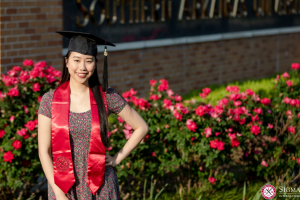Alone Together
Despite closed campuses, delayed commencements, and our cancelled Las Vegas Convention, we English enthusiasts already are familiar with “social distancing.” Sigma Tau Delta has an elaborate social media presence that connects students, Faculty Advisors, and alumni, and the Sigma Tau Delta and National English Honor Society websites contain considerable information on English themes and chapter activities ripe for adaptation to online adjustments.
As lovers of language we’re nowhere near as separated as we might initially have thought. In fact, for many if not most of us who are comfortable with writing, literature, language studies, and any number of other English-related matters, we might even feel we’ve finally found an opportunity to exercise our wish to indulge ourselves with all of these. Like Br’er Rabbit, we’ve found our briar patch.

When you think about it, this social distancing is a topic, under various names, that for almost all of us has been both a fascinating and a prolific literary theme. Who, for example, has not at some time thought of Emily Dickinson sequestering herself in her Amherst room as she produced thousands of poems? Or of Thoreau, choosing to “live deliberately” at Walden Pond and who did very well (mostly) alone.
Consider, as well, the considerable literary expressions of individuals “distanced” from others, either by choice or by necessity. E. M. Forster famously wrote that we should “only connect.” Yet isolation can yield profound results. Ovid had a prolific exile, producing significant works while distanced from Rome; Dante didn’t write his Divine Comedy until he was in exile; Prospero gave himself fully and productively to his art during those years on the island. (Gregor Samsa, in Kafka‘s Metamorphosis, has quite the opposite experience, undergoing existential angst as his solitude confirmed his isolation from humanity!) Wordsworth exults as he wanders “lonely as a cloud.” Boccaccio‘s wonderful Decameron details how a group of young aristocrats spend their time, telling great stories (clever, tragic, witty, and bawdy) while socially distancing themselves from plague-ridden Florence.
Sometimes even whole cultures opt for self-seclusion. Pulitzer Prize winning author Geraldine Brooks sets her Year of Wonders: A Novel of the Plague in 1666, basing it on a true story of a village in England that quarantined itself to arrest the spread of disease, after the plaque arrived in town. What a relevant, timely lesson for all of us.
I certainly won’t be writing a novel during my current seclusion. I may not even write a poem. However, I continue reading, fiction and non-fiction, and already am using my at-home time for doing something that seems almost to have become lost in contemporary culture—writing letters. I’ve just finished one to thank a former teacher for leading me on my path; another went to an ailing colleague, along with a “thinking of you” card; still another reconnects me with a friend I haven’t seen since our college days. The more I connect this way the more people I think of to connect with! Without this period of distancing, I may never have rediscovered these connections.
Remember that your Sigma Tau Delta participation links you to tens of thousands of other English folk. Consider using some of your time developing interchapter activities. Our website lists almost a thousand chapters. Reach out. Share experiences. Develop some good writing challenges, or build a novel by starting a paragraph and having others add to it, paragraph by paragraph. Share ideas, projects, and suggestions with the rest of your Sigma Tau Delta colleagues. Share—and connect. We all are stronger personally and collectively when we work together.
One thing we can learn from the solitude and quiet is that we are at a highly teachable moment in time, one we will remember for the rest of our lives. Although distanced, we are in this together at our respective schools, in our towns and cities, our states, our country, and globally. When we come out of this—as I am certain we will—what will we teach others about our collective and personal solitude? Moreover, what will we ourselves learn from this social retreat? In one of my current alone-time readings, When Things Fall Apart, Buddhist nun Pema Chodron begins with this insightful and timely statement: “This very moment is the perfect teacher.” I absolutely concur.
 William C. Johnson
William C. Johnson
Executive Director
Sigma Tau Delta
More from Footnotes: April 28, 2020
Meet Your 2020-2021 Student Leaders!
Chapter Annual Report
Journal Submissions







Add Comment